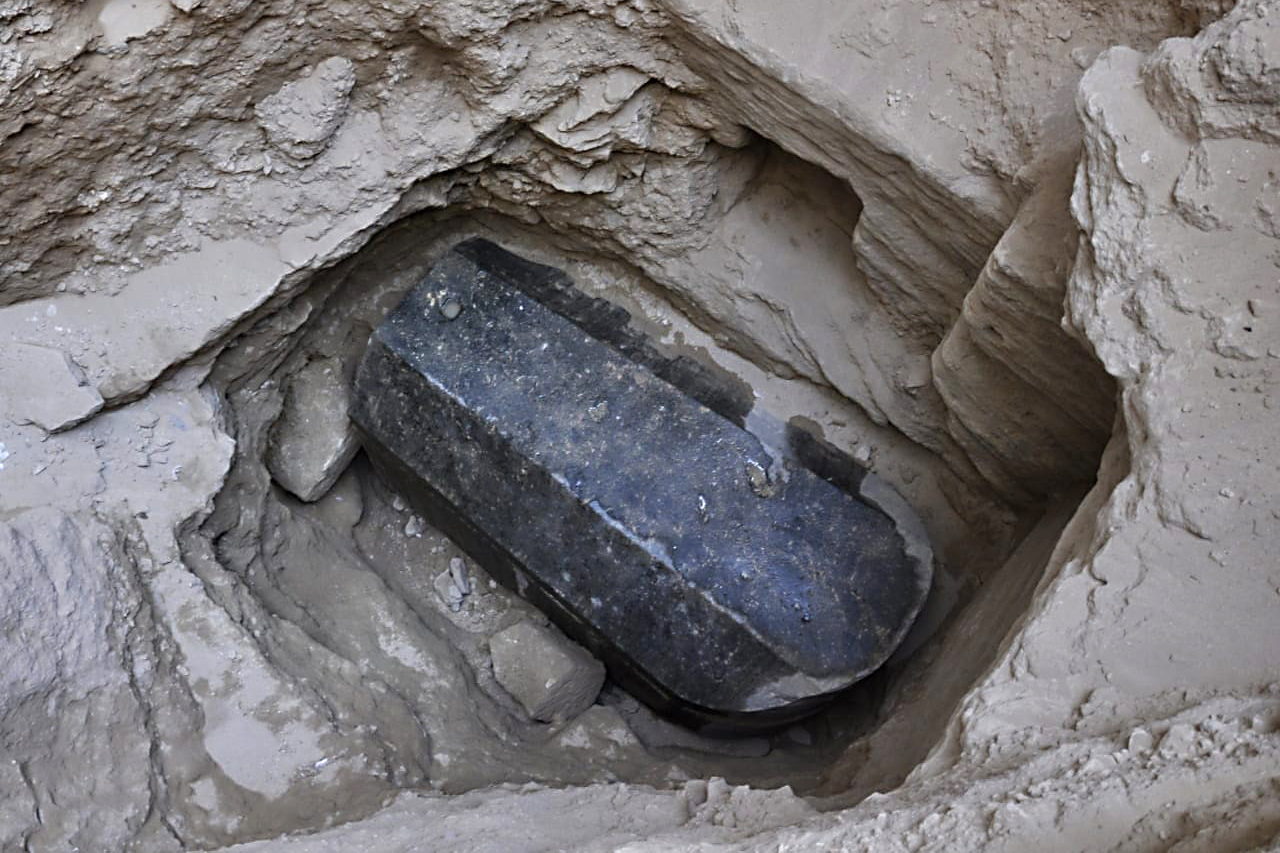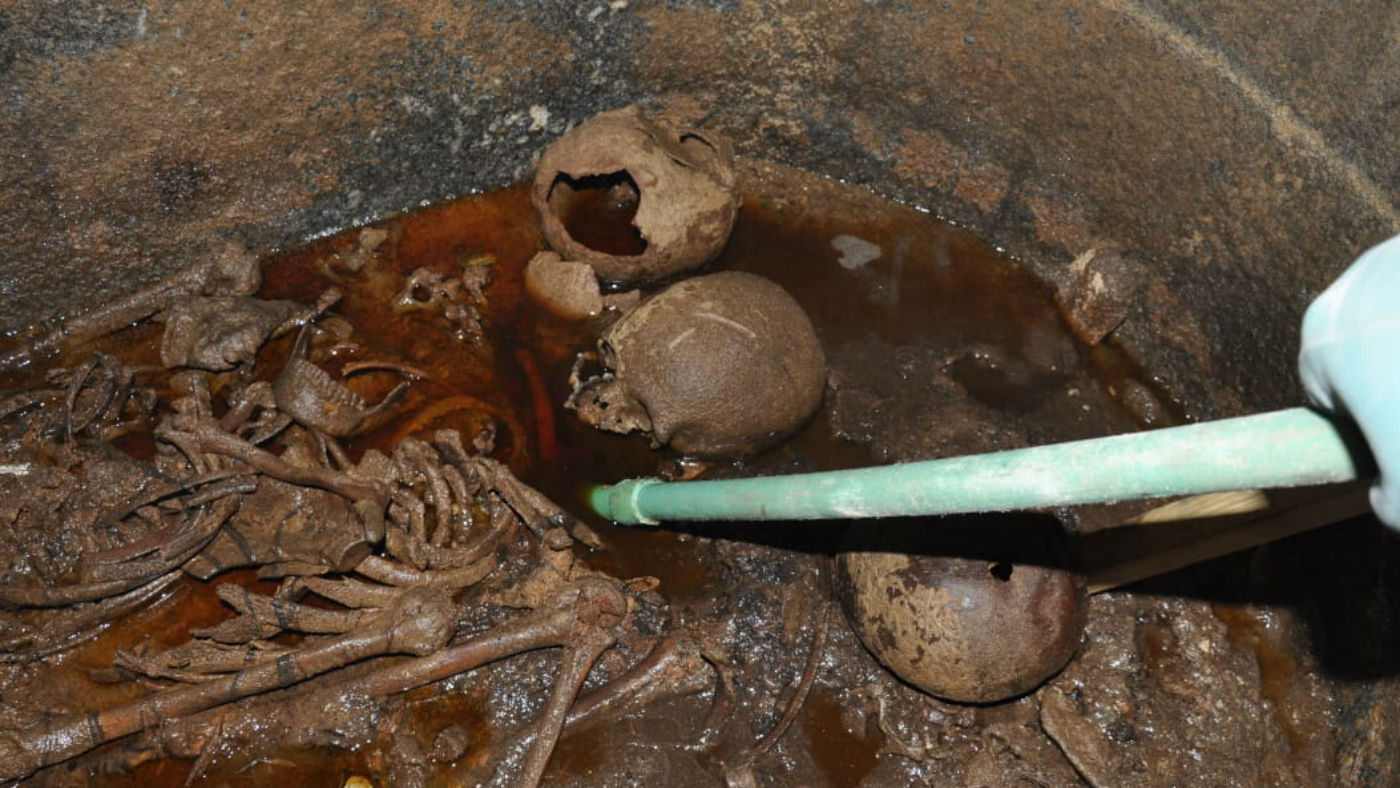Egypt sarcophagus opened: what was inside?
The 2,000-year-old black granite tomb was found in Alexandria two weeks ago

A free daily email with the biggest news stories of the day – and the best features from TheWeek.com
You are now subscribed
Your newsletter sign-up was successful
The recent discovery of a giant sarcophagus in Alexandria that had lain untouched for around 2,000 years sparked a range of rumours, from fears that the relic carried a deadly curse to theories that it contained the remains of Alexander the Great.
Now Egypt’s Ministry of Antiquities has put us out of our misery by opening it, and while a deadly curse has not been unleashed (yet), the tomb does contain skeletons - though probably not Alexander’s.
Along with an abundance of sewage that had leaked into the sarcophagus, archaeologists found the remains of what was likely to be either a family or soldiers from the time of the Pharaohs.
The Week
Escape your echo chamber. Get the facts behind the news, plus analysis from multiple perspectives.

Sign up for The Week's Free Newsletters
From our morning news briefing to a weekly Good News Newsletter, get the best of The Week delivered directly to your inbox.
From our morning news briefing to a weekly Good News Newsletter, get the best of The Week delivered directly to your inbox.
“We found the bones of three people, in what looks like a family burial... Unfortunately, the mummies inside were not in the best condition and only the bones remain,” said Mostafa Waziri, secretary general of the Supreme Council of Antiquities.

The pungent odour of the sewage initially forced the archaeologists to flee the scene after slightly shifting the 15-ton lid, before later returning with Egyptian military engineers to fully open the sarcophagus, according to the BBC.
One of the skulls found inside is said to have cracks that point to an arrow injury, supporting the soldiers theory. A worn alabaster bust was also found at the site, which has been cleared temporarily of people amid fears that the sarcophagus could release toxic fumes.
Measuring two metres (almost 7ft) high by three metres (10ft) long, the sarcophagus is the largest ever found intact and is believed to date back to the early Ptolemaic period, which began in 323 BC, following Greek leader Alexander’s death.
A free daily email with the biggest news stories of the day – and the best features from TheWeek.com